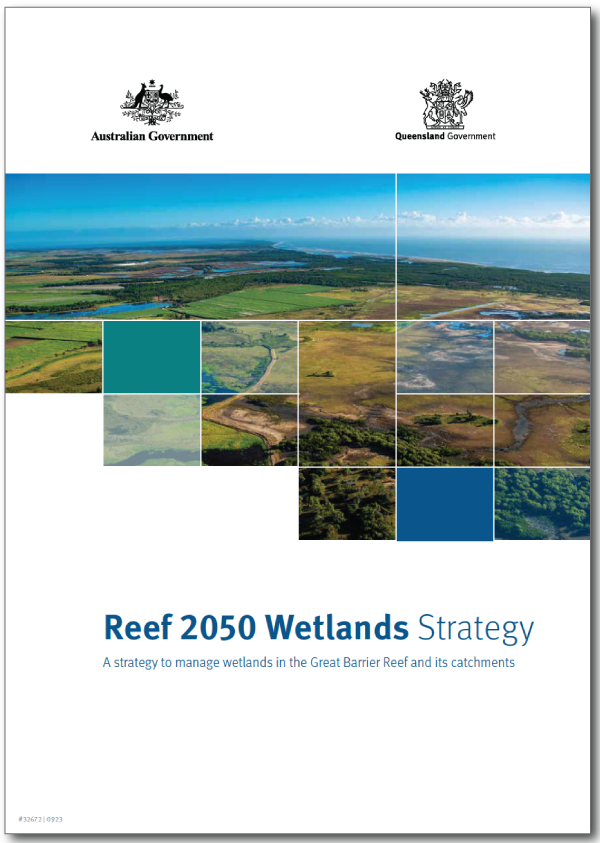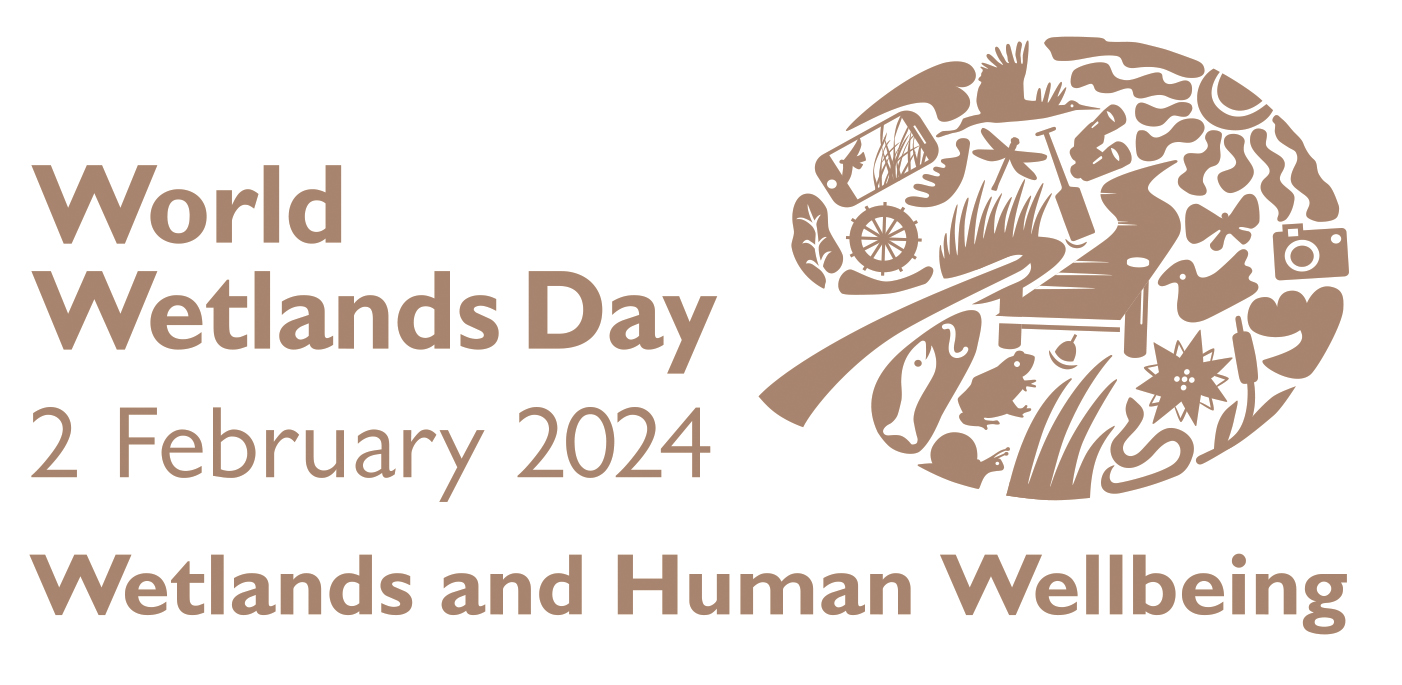|
|
WetlandUpdate World Wetlands Day February 2024

Reef 2050 Wetlands Strategy: a Strategy to manage wetlands in the Great Barrier Reef and its catchments The Reef 2050 Wetlands Strategy supports the Reef 2050 Long term Sustainability Plan and the Reef 2050 Water Quality Improvement Plan in setting out a framework for the improved management of the wetlands of the Great Barrier Reef catchments. It builds on the achievements of the Queensland Wetlands Program and recognises wetlands as vital to the health of the Great Barrier Reef ecosystem and its catchments. The Strategy is underpinned by a whole-of-system, values-based framework which is an integrated approach to catchment management and protecting, maintaining and rehabilitating wetland systems. The development of an updated Reef 2050 Wetlands Strategy incorporated the outcomes of the evaluation of the 2016-21 Strategy and extensive consultation with Queensland State agencies, Australian Government agencies (DCCEEW, Reef Authority), GBR Wetlands Network, local governments, conservation organisations, Queensland Ports Association, agricultural and water supply organisations, and Traditional Owner representatives. The Strategy should be used to inform the development and implementation of operational and land use plans and programs, strategic planning documents, on-ground works and activities, research programs and projects and monitoring frameworks. Funding bodies should consider the Strategy when assessing proposals for projects that deliver multiple benefits including improved wetlands management. 
World Wetlands Day is a global awareness campaign celebrated every year on 2 February to highlight the value of wetlands. This day also marks the anniversary of the Convention on Wetlands, an intergovernmental treaty adopted in 1971 and which now has a global membership of 172 countries. This year’s theme is ‘Wetlands and Human Wellbeing’. Wetlands and people are connected, with wetlands contributing to water, food, livelihoods, culture, biodiversity and climate change mitigation for our wellbeing. Information materials to support outreach activities for World Wetlands Day 2024 are available to download from the Ramsar Convention website at www.worldwetlandsday.org. 
Additional links

WetlandUpdateThe WetlandUpdate is a regular bulletin sent to subscribers to provide you with the latest WetlandInfo resources and tools, as well as case studies, video information and new project fact sheets. WetlandInfo feedback and improvementsContact us via email for feedback, information or questions about wetlands. WetlandInfo feature speciesThe feature species for November is the Indo Pacific Tarpon (Megalops cyprinoides) The Indo-Pacific tarpon is an amphidromus fish species found on the coasts off northern Australia, South and Southeast Asia, southern Japan, and French Polynesia. The tarpon spends its life in both fresh and salt water. During different life stages, the tarpon migrates between the open sea and inland coastal rivers. The tarpon spawns mainly in near shore marine and estuarine areas in the summer wet season, while juveniles venture into coastal streams. They are commonly found near the water surface, often in shallow inshore waters and inhabit coral reefs, mangroves, coastal wetlands, rivers and canals. Tarpon are opportunistic feeders and will eat smaller fish, crustaceans, prawns and some plants, and can be found feeding beneath floating aquatic vegetation. Juveniles feed on plankton. Tarpon are a large elongate fish with a thread on their single central dorsal fin. Their colour can range from bluish-green to olive-green, and silver on the sides and belly. Their larvae are leptocephalic (flattened, transparent and eel-like). They can supplement their own oxygen supply in low oxygen environments and tolerate a wide pH range (5.2-9.1). Additional informationThis section is updated regularly, so stay tuned for more! Last updated: 17 January 2024 This page should be cited as: Department of Environment, Science and Innovation, Queensland (2024) WetlandUpdate World Wetlands Day February 2024, WetlandInfo website, accessed 8 May 2025. Available at: https://wetlandinfo.des.qld.gov.au/wetlands/resources/publications/latest-news/2023-13-11.html |

 — Department of the Environment, Tourism, Science and Innovation
— Department of the Environment, Tourism, Science and Innovation



